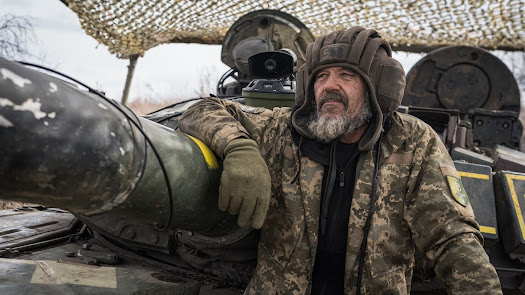Just as France's intervention was pivotal for America's victory in its war of independence, so too is American aid crucial for Ukraine's survival against Russian aggression.
In a time where history whispers lessons into the ears of the present, I find myself grappling with the urgent need for America to bolster Ukraine in its existential struggle against Russia. This call to arms is not merely a strategic imperative but a moral echo of America’s own revolutionary past. The parallels between Ukraine's current plight and America's war of Independence are stark and compelling.
As
a scholar deeply entrenched in the study of warfare, I cannot ignore the stark
warnings issued by the Institute for the Study of War (ISW). Russia is
tactically outmaneuvering Ukraine, gaining crucial ground as Ukraine faces dire
shortages in military supplies. Frederick Kagan, a researcher at ISW, outlines
a bleak scenario: without rapid American intervention to resume aid, Ukraine's
ability to maintain its defensive lines is compromised. According to Kagan’s
Tuesday analysis, the lack of air defense has left Ukrainian units vulnerable
to Russian air strikes, marking a significant shift in the dynamics of this
war. It is evident that "Ukrainian artillery shortages are letting the
Russians use armored columns without suffering prohibitive losses," a
first since the conflict's escalation in 2022.
The
geographical gains of Russia are alarmingly tangible, having seized an area in
eastern Ukraine roughly the size of Detroit since the onset of 2024. This
territorial advance is a somber marker of the potential future—a Russian
victory that could dramatically alter the balance of power in Europe and
beyond. Kagan's stark proclamation resonates with urgency: "Russian
advances will accelerate absent urgent American action."
The
shadow of history looms large over this contemporary conflict. During America’s
fight for independence from 1778 to 1782, it was France’s intervention that
tipped the scales. They provided not just arms and ammunition, but also
uniforms, troops, and naval support, crucially bolstering the beleaguered
Continental Army. Today, Ukraine exhibits a similar resolve and competence in
its military efforts against a formidable adversary, echoing the spirited
defense of early American forces.
Despite
this, the flow of critical U.S. aid to Ukraine has stumbled into a political
quagmire. Congress has faltered, with no new aid packages approved since the
end of 2022. The Senate passed a $95 billion national security package in
February, aimed at supporting Ukraine and other allies, yet the House remains
inert. Speaker Mike Johnson’s willingness to advance the Ukraine aid package
may cost him his position, signaling the divisive political landscape in which
foreign policy now precariously sits.
On
the battlefield, the disparities in resources between the Ukrainian and Russian
militaries are stark. Russia, with its larger military and swelling territorial
control, captured the eastern city of Avdiivka in February. Defense Secretary
Lloyd Austin captured the essence of the challenge in a House Appropriations
hearing, noting Russian President Vladimir Putin’s belief that the West’s
resolve will wane and the coalition supporting Ukraine will fracture.
In
the chilling analysis provided by Frederick Kagan, the consequences of
abandoning Ukraine are stark and dire. Should American support waver, Russian
forces could not only reclaim territory but also potentially advance toward
Kyiv and threaten NATO's eastern borders. This scenario would not just
compromise Ukraine but also destabilize the security architecture that has
maintained peace in Europe post-Cold War. On the flip side, with sustained and
substantial U.S. support, Ukraine has the potential to transform into one of
the most powerful military forces in Europe. This strengthened Ukrainian
military would serve as a significant deterrent against Russian ambitions,
ensuring that further aggression towards NATO members becomes a risky endeavor
for Moscow.
This
precarious situation demands a strong and decisive response from the United
States. The historical parallel with France’s crucial role in America's fight
for independence is particularly poignant. French aid was not just material but
symbolized a commitment to fundamental principles of sovereignty and resistance
against oppression—principles that are equally relevant today. American aid to
Ukraine is thus not only a strategic necessity to maintain European stability
but also a moral imperative. Our commitment reflects the values upon which our
own nation was built and acknowledges the historical support we once received
in our time of need.
I
urgently appeal to President Biden and the broader American public to draw upon
our foundational history and act with the courage that shaped our nation. We
must not be passive spectators in the face of authoritarian expansion or
retreat into isolationism driven by short-term political calculations. The
struggle of Ukraine transcends mere territorial disputes; it is a fight for the
preservation of an international order where smaller states are not subjugated
by greater powers through opportunistic aggression. This moment in history is a
test of our resolve and values—will America rise to meet the challenge as the
French did for us over two centuries ago?





No comments:
Post a Comment